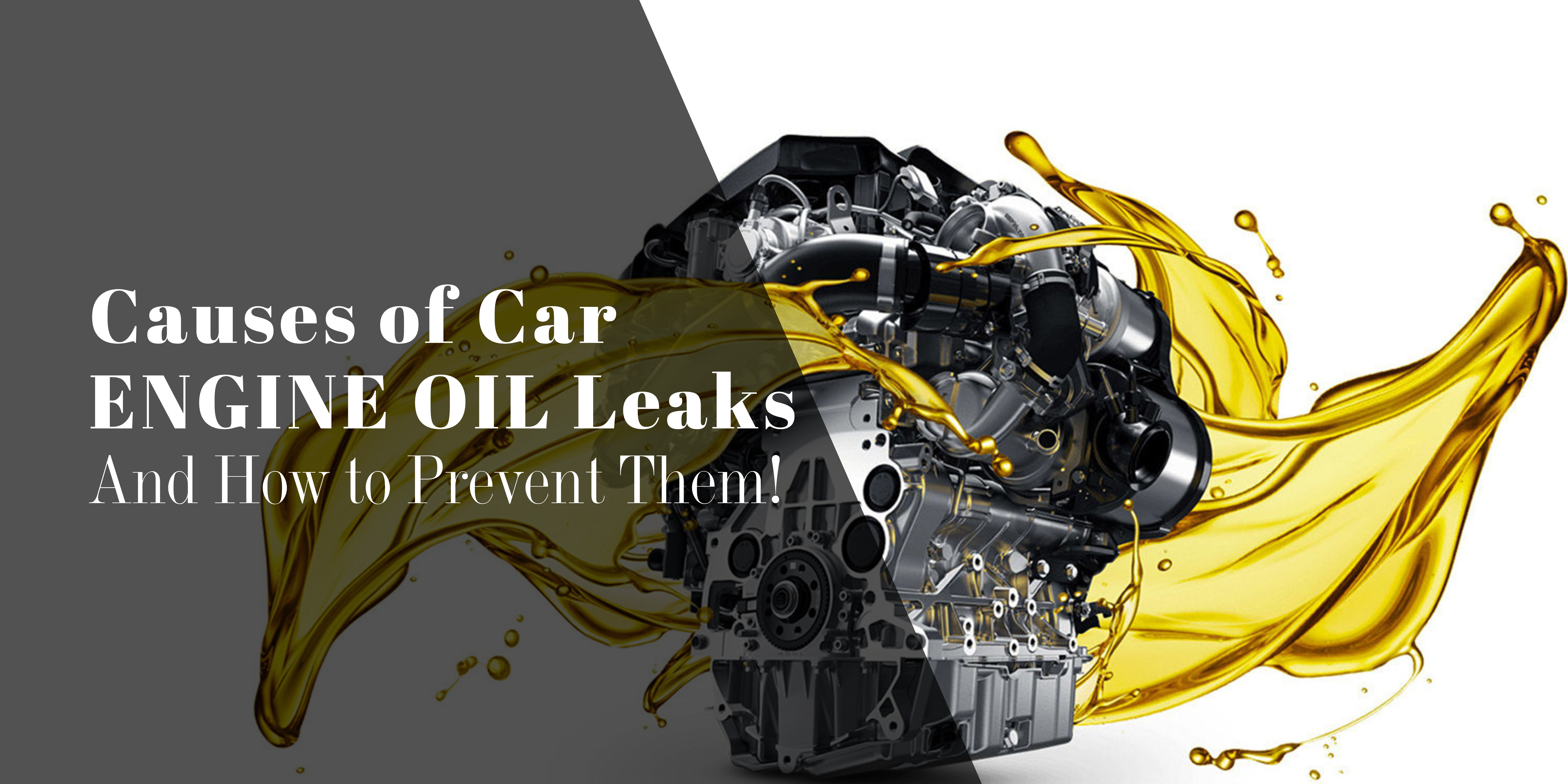
Have you ever experienced a warning that your engine is running low soon after topping up? Perhaps there are oil leak stains all over the place where your car was parked. Pay close attention because these are warning signs of a car oil leak, and trying to operate your car while it has one can seriously harm your engine. Low engine oil consumption may result in your car losing lubrication and preventing heat from flowing, which will significantly reduce engine performance.
The majority of car oil leaks begin small, which is good news. In actuality, a "seepage," or puddle between one and two inches in diameter, typically poses no immediate threat to your engine.
Here are a few possible causes of an unexpected oil leak in your engine.
Most Engine Oil Leaks are Caused by Cracked Gaskets, Which are the Main Culprit.
A malformed or cracked gasket is frequently to blame for an unexpected oil leak after an oil change. Typically made of rubber or urethane, gaskets can become more durable over time. When they are exposed to sudden impact or drastic temperature changes, such as the change from a harsh winter to an intense summer, this can lead to cracking. Because the gasket is unable to properly seal in the oil, it drips and spills out from under your car, gradually lowering the level of engine oil and leaving you with those gleaming puddles.
When you suspect an oil leak, the gasket should be the first place you check for trouble after checking your valves.
Oil Filter Leakage or a Broken Oil Filter
The oil filter is another place to look when determining where an oil leak originates. Over time, engine oil frequently contains small particles and worn metal powders. The oil filter's responsibility is to remove these impurities and maintain a clean supply of engine oil. However, if the oil filter is applied too loosely, leaks may develop, and oil may begin to flow where it should not.
Try using your hands and a dry towel to tighten your oil filter if it is leaking. If your car's oil filter continues to leak, you might need to go a step further by having the oil removed, replaced, and then re-inserting it. This would essentially involve replacing both your oil and filter at once. If there are any minor leaks in the seal, you can check by sprinkling lubricant around the oil filter's base. You might need to take out the oil pan and check the gasket if the drain plug and oil filter are checked, but there are no leaks.
Driving Under Extreme Conditions
More oil leaks can result from driving near an ocean's coast than farther inland in areas with high salinities. The salty environment causes your engine's metal components to corrode more quickly than usual, which can shorten the life of your vehicle's components and cause leaks more frequently. Of course, visiting the beach occasionally during the summer will not be a problem for you. However, it might be advantageous to pay closer attention to what's happening under your car if you live near the coast, park close to the beach, or frequently drive along seaside roads.
The gasket and other systems may also be put under additional stress by long drives in cold weather or excessive acceleration at low temperatures, which can eventually reduce the durability and lead to engine oil leaks.
When You Discover an Oil Leak, What Should You Do?
The best course of action if you notice any indications of an oil leak is to immediately identify the source. You should replace or repair the defective component as soon as you find it. You might think about turning off the engine oil in dire circumstances, but doing so will not solve the problem's underlying causes; it is only a short-term solution.
Regular engine inspection and maintenance is the best way to avoid surprises and prevent minor car oil leaks from developing into major ones because small ones can be difficult to find. You can prevent leaks and keep your car running safely for longer by checking the engine oil levels through the gauge and by looking at the bottom of the car when changing the oil.